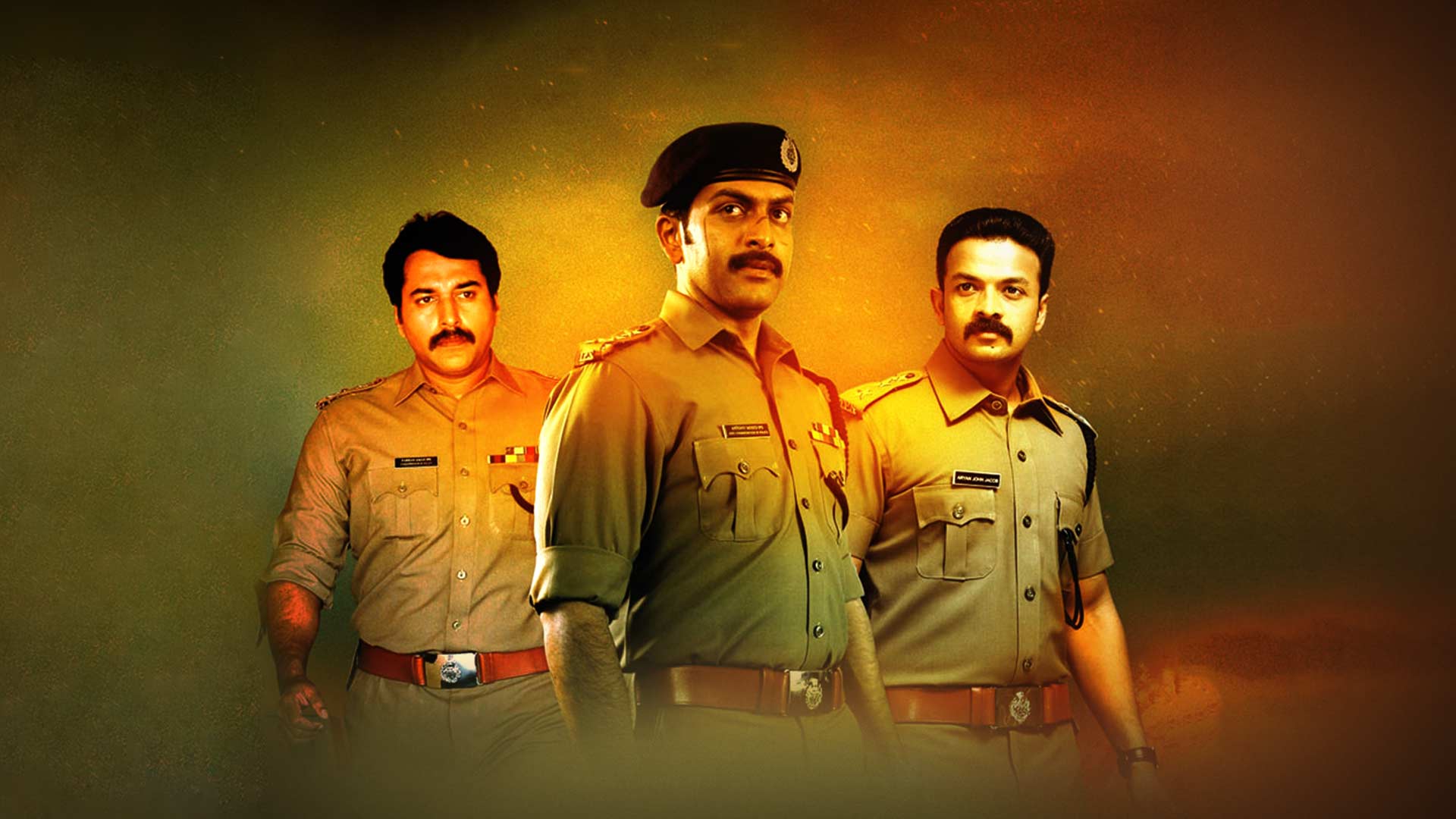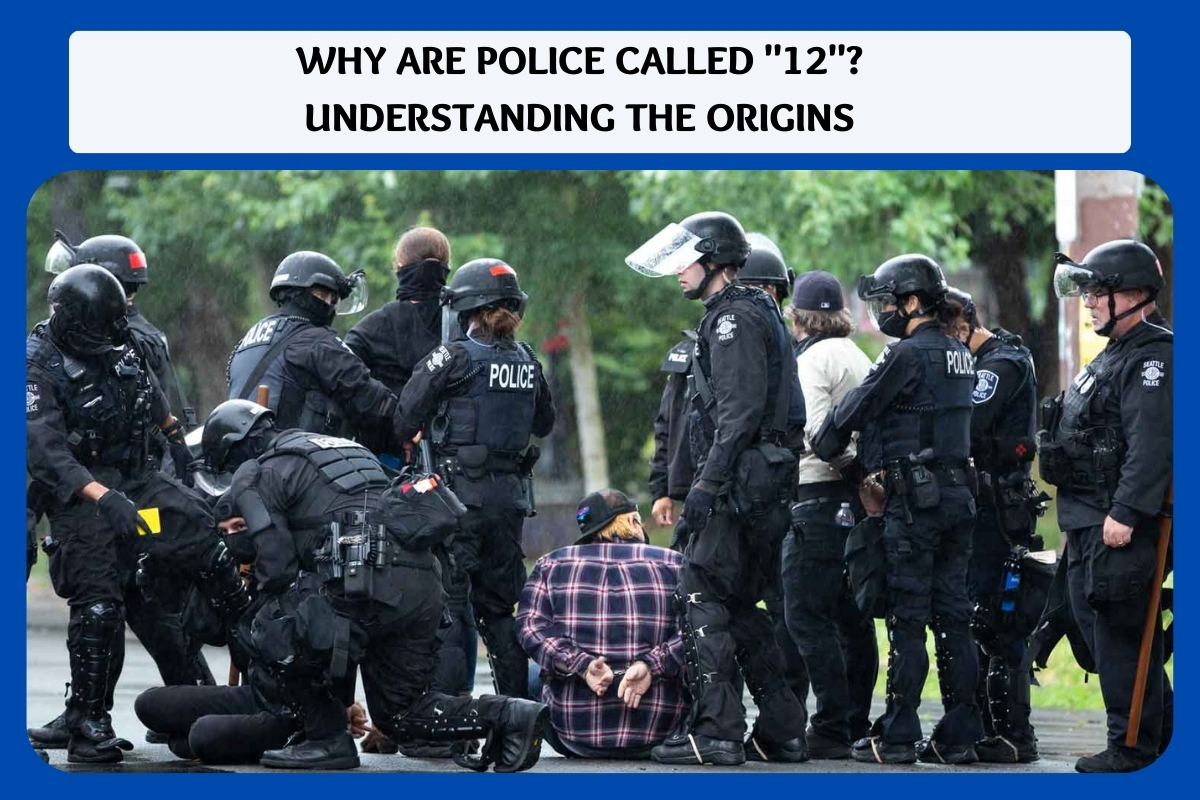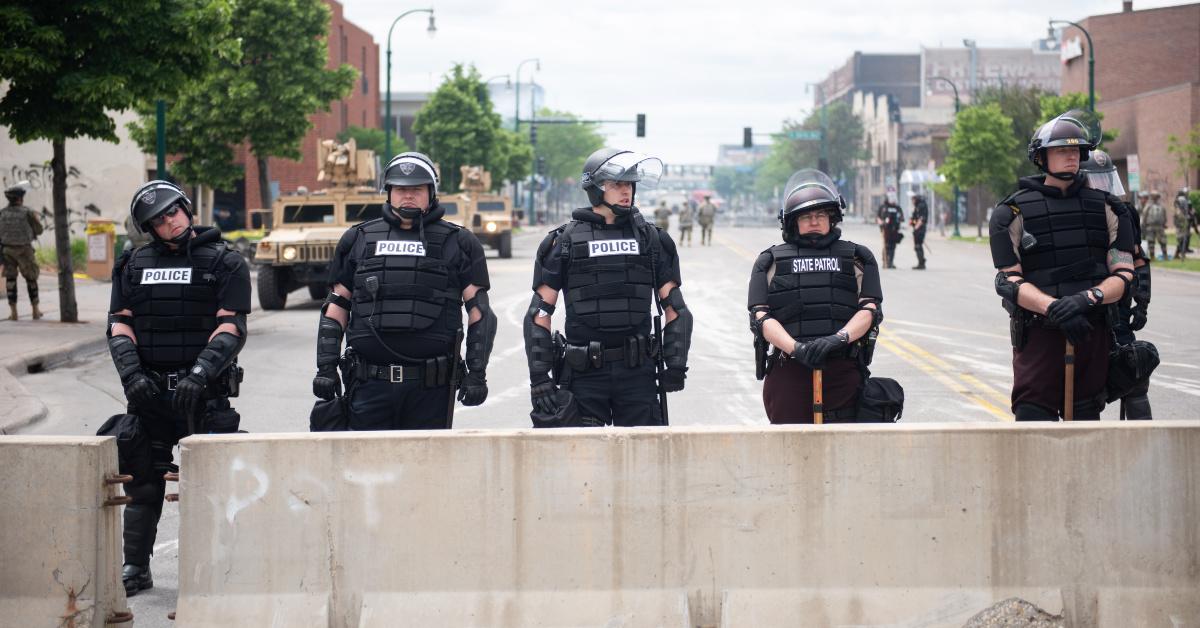Let’s talk about why the number 12 is so closely tied to police. If you’ve ever wondered why cops are often referred to as “12” in slang or pop culture, you’re not alone. This term has deep roots in history, culture, and even law enforcement itself. Understanding the connection between 12 and police can give you a whole new perspective on how we talk about law enforcement in everyday life. So, buckle up, because we’re diving deep into this fascinating topic.
Now, you might be thinking, “Why 12? What’s so special about this number?” Well, it’s more than just a random choice. The term “12” has been around for decades, and its origins are tied to some pretty interesting historical and cultural factors. In this article, we’ll break it all down for you, from the roots of the term to its modern-day usage.
Before we get into the nitty-gritty, let’s set the stage. The phrase “12 police” isn’t just a random piece of slang; it’s a reflection of how society interacts with law enforcement. Whether you’re a fan of cop shows, a history buff, or just curious about the origins of language, this article is for you. So, let’s get started!
Read also:Behind The Scenes A Deep Dive Into An Actors Personal Life
Understanding the Origin of “12 Police”
When we talk about why “12” became synonymous with police, we have to go back to the early days of radio communication. In the 1950s and 60s, police officers used 10-codes to communicate over radios. These codes were designed to make communication quick and efficient. One of the most famous codes was “10-12,” which meant “police presence” or “officer on patrol.” Over time, the “10” part of the code got dropped, and “12” stuck as shorthand for police.
But the story doesn’t end there. The use of “12” spread beyond just radio codes. It became part of everyday language, especially in communities where interactions with law enforcement were frequent. Whether it was in music, movies, or street talk, “12” became a universal symbol for police presence.
How Radio Codes Shaped Modern Slang
Let’s take a closer look at how radio codes influenced the way we talk about police today. Back in the day, officers had to communicate quickly and clearly, especially in high-pressure situations. That’s where the 10-code system came in. It was a way to convey complex messages with just a few numbers. For example, “10-4” meant “message received,” and “10-7” meant “out of service.”
But why did “10-12” become so iconic? Well, it had everything to do with its meaning. “10-12” wasn’t just a code for police presence; it was a way to signal that an officer was actively patrolling an area. Over time, this code became shorthand for law enforcement itself. It’s like how we use “911” to refer to emergency services—it’s a number that’s deeply embedded in our collective consciousness.
Why Is 12 Police? The Cultural Connection
Now that we’ve covered the historical roots of the term, let’s talk about its cultural significance. The use of “12” to refer to police isn’t just limited to law enforcement circles. It’s also a big part of pop culture. From hip-hop lyrics to TV shows, the term “12” has been used to describe everything from undercover cops to patrol cars.
But why does this term resonate so much in popular media? For starters, it’s short, sweet, and easy to remember. In a world where attention spans are shorter than ever, slang terms like “12” are perfect for grabbing people’s attention. Plus, they carry a certain mystique that makes them irresistible to writers, musicians, and filmmakers.
Read also:How Tall Was Chuck Connors Unveiling The Legends Height And More
Pop Culture References to “12 Police”
Let’s dive into some of the most famous pop culture references to “12 police.” One of the earliest examples comes from the world of hip-hop. In the 1980s, rappers started using “12” as a way to talk about police without directly naming them. This was especially common in songs about street life, where artists wanted to avoid drawing attention from law enforcement.
Here are a few examples of how “12” has been used in music:
- “12 rolled up on the block” – A line from a classic rap song describing police arriving at a scene.
- “Stay away from 12” – A warning to stay clear of trouble with the law.
- “12’s been watching” – A phrase used to describe police surveillance in a neighborhood.
These references aren’t just random—they’re a reflection of how deeply the term “12” is embedded in our cultural lexicon.
Legal and Law Enforcement Perspectives
From a legal standpoint, the use of “12” to refer to police is both fascinating and complex. On one hand, it’s a testament to how language evolves over time. On the other hand, it raises important questions about how we talk about law enforcement in public discourse.
For law enforcement agencies, the term “12” can be both a blessing and a curse. On the positive side, it’s a shorthand that’s easily understood by officers and civilians alike. On the negative side, it can sometimes be used in a derogatory or dismissive way, which can create tension between police and the communities they serve.
How Law Enforcement Views the Term “12”
So, how do police officers themselves feel about being referred to as “12”? It really depends on the context. Some officers see it as a neutral term, while others might take offense if it’s used in a negative way. The key is understanding the intent behind the usage.
For example, if someone uses “12” in a song about resisting arrest, that’s going to be perceived differently than if it’s used in a news report about community policing efforts. It’s all about the tone and the message being conveyed.
The Evolution of Police Slang
Language is always evolving, and police slang is no exception. Over the years, we’ve seen a wide range of terms used to describe law enforcement, from “cops” to “pigs” to “12.” Each of these terms has its own history and cultural significance, and they’ve all played a role in shaping how we talk about police today.
But why do we need so many different terms for the same thing? Well, language is a reflection of our experiences and emotions. For some people, “12” is a neutral term that simply describes a fact of life. For others, it’s a symbol of authority or even oppression. The way we use language says a lot about how we feel about the world around us.
Common Police Slang Terms
Here’s a quick rundown of some of the most common police slang terms and their meanings:
- Cops: A general term for police officers.
- Pigs: A more controversial term that’s often used in a negative context.
- 12: A shorthand term for police presence, often used in pop culture.
- Five-O: Another popular term for police, often seen in TV shows and movies.
Each of these terms has its own history and cultural baggage, which is why it’s important to use them thoughtfully and respectfully.
The Role of Technology in Modern Policing
As technology continues to evolve, so does the way we talk about police. In the digital age, terms like “12” are being replaced by new slang that reflects the realities of modern policing. For example, you might hear people talk about “drones” or “surveillance cameras” instead of just “12.”
But what does this shift mean for the future of police slang? Well, it’s a sign that language is always adapting to new circumstances. As technology becomes more integrated into law enforcement, we can expect to see even more new terms emerge. It’s all part of the ongoing evolution of how we communicate about the world around us.
How Technology is Changing Police Slang
Here are a few examples of how technology is influencing the way we talk about police:
- Body Cams: Devices worn by officers to record interactions with civilians.
- License Plate Readers: Technology used to track vehicles in real-time.
- AI-Powered Policing: The use of artificial intelligence to predict and prevent crime.
These new technologies are changing the way we think about law enforcement, and they’re also influencing the language we use to describe it.
Community Relations and the Term “12”
When it comes to community relations, the term “12” can be a double-edged sword. On one hand, it’s a neutral term that’s widely understood by both police and civilians. On the other hand, it can sometimes be used in a way that creates tension or mistrust.
For communities that have experienced negative interactions with law enforcement, terms like “12” can be a reminder of those experiences. That’s why it’s so important for police departments to engage in open and honest dialogue with the communities they serve. By building trust and understanding, they can help bridge the gap between law enforcement and the public.
Building Trust Between Police and Communities
So, how can police departments work to build trust with the communities they serve? Here are a few strategies:
- Community Policing: A model that emphasizes collaboration and communication between police and civilians.
- Transparency: Sharing information openly and honestly to build trust.
- Accountability: Holding officers accountable for their actions to ensure fairness and justice.
These strategies aren’t just good for community relations—they’re also good for public safety. When police and civilians work together, everyone benefits.
Why Is 12 Police? Final Thoughts
As we wrap up our exploration of why “12” is so closely tied to police, it’s clear that this term has a rich and complex history. From its roots in radio codes to its place in pop culture, “12” has become a symbol of law enforcement in its many forms. But it’s also a reminder of the ongoing conversation between police and the communities they serve.
So, the next time you hear someone refer to police as “12,” take a moment to think about the history behind that term. It’s more than just a number—it’s a reflection of how we communicate, connect, and navigate the world around us.
Call to Action
Now that you know more about why “12” is synonymous with police, we’d love to hear your thoughts. Do you have any favorite pop culture references to “12 police”? Or maybe you have a story about how this term has impacted your community. Let us know in the comments below, and don’t forget to share this article with your friends!
Thanks for reading, and stay tuned for more fascinating insights into the world of language, culture, and law enforcement!



